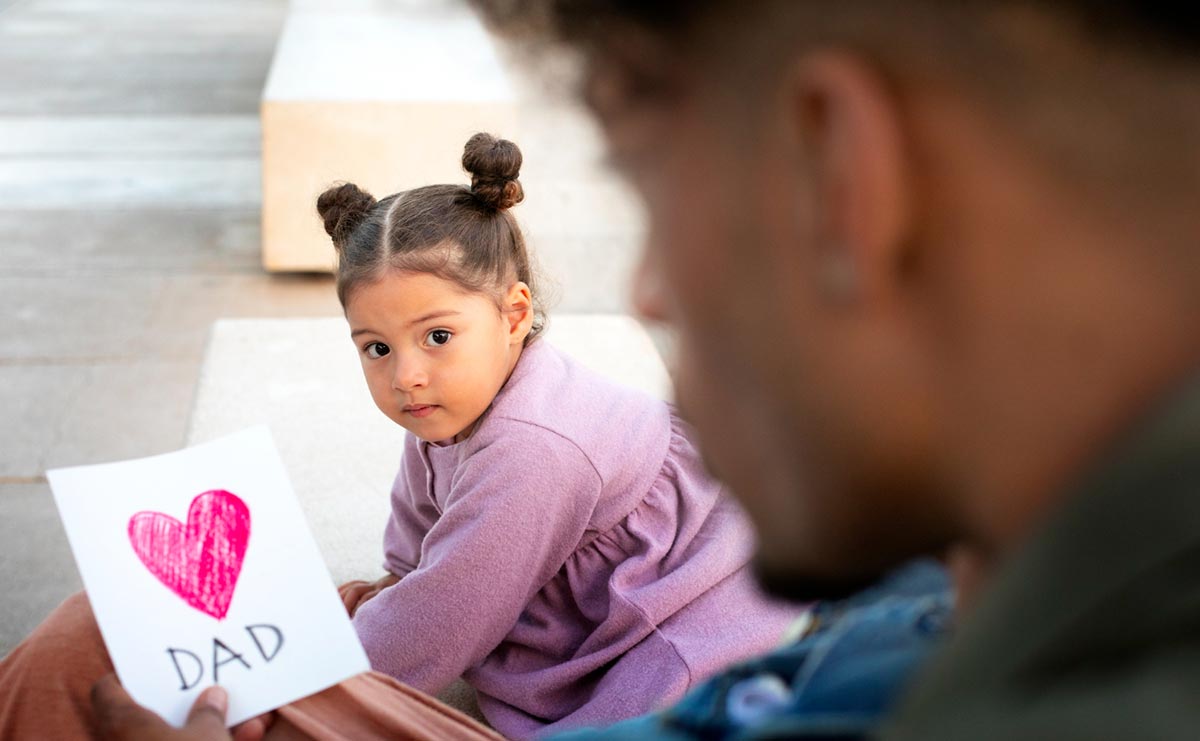Contents
Navigating Expat Child Custody Law in the UAE
Navigating child custody law in the UAE for expats can be a complex and emotionally charged process for expatriates in the United Arab Emirates (UAE), a country where the legal system interweaves Islamic Sharia law with international legal principles. The UAE’s Personal Status Law, which primarily governs family issues including child custody, applies distinct provisions for Muslim and non-Muslim residents. While Muslim expatriates are subject to Sharia-based regulations, non-Muslims may opt to apply the laws of their home countries, provided these laws are explicitly stated in their marriage contracts and recognized by UAE courts. The jurisdiction of UAE courts over all custody matters within its territory, coupled with a strong emphasis on the best interests of the child, underscores the importance of understanding both local customs and international legal frameworks. Expatriates must often navigate a maze of legal requirements, including obtaining necessary documentation and possibly engaging in mediation to resolve disputes amicably. A child custody lawyer is crucial to effectively manage these complexities and ensure that custody arrangements align with both local regulations and the unique needs of expatriate families.
Expat Child Custody Provisions in UAE
The child custody law in the UAE for expats often involves unique challenges, as it combines elements of local Sharia law with considerations of international family law principles. For expatriates living in the UAE, child custody issues can be particularly complex due to the interplay between local customs and the laws of their home countries.
The UAE’s Personal Status Law, which is largely based on Sharia principles, governs family matters, including child custody. This law applies to Muslims in the UAE. However, non-Muslim expatriates can choose to apply the laws of their home country if they have a registered marriage certificate from their home country. Expatriates may have the option to apply their home country’s laws to their custody disputes, but this is subject to the approval of the UAE courts. Non-Muslims can use the UAE Personal Status Law or their home country’s law if the latter is explicitly stated in a marriage contract or agreed upon by both parties.
The UAE courts have jurisdiction over all custody matters occurring within its territory. Expatriates can file for custody in the UAE if they are residents, but they should be aware that the local laws will significantly influence the court’s decision. UAE courts prioritize the best interests of the child when determining custody arrangements. Factors considered include the child’s age, gender, emotional and physical well-being, and each parent’s ability to care for the child.
In UAE law, custody refers to the day-to-day care and upbringing of the child, usually granted to the mother for younger children. Guardianship, on the other hand, involves the financial and decision-making responsibilities, typically held by the father. Generally, mothers are given custody of young children (boys up to the age of 11 and girls up to the age of 13). After these ages, custody may revert to the father unless the court decides otherwise based on the child’s best interests.
Fathers can apply for custody if they believe the mother is unfit or if the child reaches the age threshold where custody traditionally passes to the father. Fathers maintain guardianship responsibilities regardless of custody status.
Custodial parents need the consent of the non-custodial parent or a court order to relocate or travel internationally with the child. This provision aims to prevent child abduction and ensure both parents are involved in major decisions affecting the child’s life.
Expatriates should seek legal advice from lawyers experienced in UAE family law to navigate the complexities of custody disputes effectively. Mediation is encouraged to reach amicable custody arrangements without prolonged court battles. The UAE courts support mediated agreements that serve the child’s best interests. Proper documentation, including marriage certificates, residency permits, and any relevant home country legal documents, should be presented to support the custody case.
Understanding and respecting local customs and legal nuances is crucial for expatriates dealing with custody issues in the UAE. Navigating child custody as an expatriate in the UAE requires careful consideration of both local laws and international legal principles. By being well-informed and seeking appropriate legal counsel, expatriates can better manage the complexities of custody disputes in this unique legal environment.
Family Laws for Non-Muslim Expatriates in UAE
Expats need to be aware that child custody law in the UAE can significantly differ from their home countries, often requiring specialized legal advice to navigate. The UAE offers a unique blend of traditional Islamic principles and modern legal frameworks to accommodate its diverse expatriate population. Non-Muslim expatriates are subject to specific family laws that can differ significantly from those applied to Muslim residents. Here is a comprehensive overview of family laws as they pertain to non-Muslim expatriates in the UAE:
Federal Law No. 28 of 2005 (Personal Status Law)
This law primarily governs family matters such as marriage, divorce, and child custody. While it is based on Islamic Sharia, non-Muslim expatriates may have the option to apply the laws of their home country.
Law No. 14 of 2021 (Personal Status Law for Non-Muslims in Abu Dhabi)
This law was specifically enacted to govern non-Muslim family matters in Abu Dhabi, offering a more secular approach to family law.
Choice of Law
Non-Muslim expatriates can choose to apply their home country’s laws to family matters if they register their marriage with their consulate or embassy and explicitly state the choice of law in their marriage contract.
Non-Muslim expatriates can marry in the UAE at their respective embassies or consulates, or in places of worship such as churches. The marriage must be registered with the UAE authorities to be legally recognized. Marriages between Muslims and non-Muslims are subject to Sharia law, which requires the non-Muslim partner to convert to Islam for the marriage to be recognized under Islamic law.
Non-Muslim expatriates can file for divorce under their home country’s laws or under UAE law. Grounds for divorce include mutual consent, adultery, abandonment, and irreconcilable differences, among others. The divorce process involves filing a petition with the UAE courts, followed by mediation sessions aimed at reconciliation. If mediation fails, the court will proceed with the divorce.
Custody refers to the daily care and upbringing of the child, while guardianship pertains to financial and legal responsibilities. Non-Muslim expatriates can apply their home country’s laws to custody disputes, but the UAE courts prioritize the child’s best interests. Typically, mothers are granted custody of young children, with fathers retaining guardianship. The court considers factors such as the child’s age, gender, and welfare when making custody decisions.
Non-Muslim expatriates are encouraged to draft a will to ensure their assets are distributed according to their wishes. Without a will, Sharia law principles may apply by default, which can significantly impact the distribution of the estate. Wills can be registered with the Dubai International Financial Centre (DIFC) Wills Service Centre or the Abu Dhabi Judicial Department to ensure they are legally recognized.
Non-Muslim expatriates can apply for spousal and child support according to their home country’s laws or UAE law. The court considers the needs of the spouse and children, as well as the financial capabilities of the paying party.
Overall, family laws for non-Muslim expatriates in the UAE provide a flexible framework that accommodates the diverse legal needs of its expatriate population. By understanding and utilizing the options available, non-Muslim expatriates can ensure their family matters are handled in accordance with their cultural and legal preferences. It is advisable to seek legal counsel to navigate these complexities effectively.
Status of Children Born Out of Wedlock in UAE
The status of children born out of wedlock in the UAE has been traditionally governed by strict Islamic principles. However, recent legal reforms have introduced more progressive measures to address the rights and recognition of these children.
Legal Reforms and Current Status
- Federal Decree-Law No. 15 of 2020
This law introduced significant changes, including the decriminalization of consensual relationships outside of marriage. It marked a shift towards a more lenient approach, allowing for the registration and recognition of children born out of wedlock.
- Federal Law No. 3 of 2016 (Child Rights Law or Wadeema’s Law)
This law ensures the protection of all children in the UAE, including those born out of wedlock, guaranteeing their right to healthcare, education, and protection from neglect and abuse.
Registration and Legal Recognition
- Birth Registration
Parents of children born out of wedlock can now register the birth of their child. Both parents’ names can be listed on the birth certificate, provided they submit a marriage certificate or proof of parentage through a paternity test.
- Documentation Required
To register the birth, parents need to provide a valid identification document (passport or Emirates ID), proof of residency, and a birth notification from the hospital. In cases where a marriage certificate is not available, a paternity test may be required.
Rights of Children Born Out of Wedlock
- Citizenship
Children born to expatriate parents in the UAE typically inherit the nationality of their parents. The UAE does not automatically grant citizenship to children born on its soil.
- Inheritance Rights
While Sharia law traditionally governs inheritance matters, the legal reforms ensure that children born out of wedlock are recognized and can inherit from their parents. It is advisable for parents to draft a will to clarify inheritance matters.
- Parental Responsibility
Both parents are legally responsible for the care and upbringing of their child. This includes providing for the child’s education, healthcare, and general welfare.
- Healthcare and Education
Children born out of wedlock are entitled to the same healthcare and educational opportunities as any other child in the UAE. Parents are responsible for enrolling their children in school and ensuring they receive necessary medical care.
Social and Cultural Considerations
- Social Acceptance
Despite the legal reforms, social and cultural attitudes towards children born out of wedlock may still be conservative. Parents should be aware of potential societal challenges and seek supportive communities or networks.
- Legal Advice and Support
It is advisable for parents of children born out of wedlock to seek legal advice to navigate the registration process and understand their rights and responsibilities fully. Legal professionals can provide guidance on ensuring the child’s recognition and protection under UAE law.
The UAE’s recent legal reforms represent a progressive step towards recognizing and protecting the rights of children born out of wedlock. While legal provisions ensure their recognition and rights, social acceptance may vary. Parents are encouraged to seek legal guidance and support to navigate the complexities of raising a child born out of wedlock in the UAE.
Child Relocation in the UAE
Child relocation cases in the UAE are governed by a combination of Islamic principles and modern legal frameworks, making them particularly complex. These cases typically arise when one parent wishes to move with the child to another country, significantly impacting custody and visitation rights. The primary legal framework governing these matters is the Federal Law No. 28 of 2005 (Personal Status Law), which emphasizes the best interests of the child while considering both parents’ rights.
The UAE has strict regulations regarding the travel of minors. A parent wishing to relocate with a child must obtain the other parent’s consent or a court order, especially if there is an existing custody agreement. When a parent petitions the court for relocation, several factors are considered to determine whether the move is in the child’s best interests. These factors include the child’s emotional, educational, and social well-being, the validity of the reasons for relocation (such as employment opportunities or better living conditions), and the impact on the child’s relationship with the non-relocating parent. The court also considers the child’s wishes if they are of sufficient age and maturity, as well as the parenting capabilities of both parents.
The legal procedure for relocation starts with the parent seeking relocation filing a petition with the UAE family court, providing detailed reasons for the move and evidence supporting the child’s best interests. The court conducts hearings where both parents can present their cases, requiring evidence such as financial records, employment offers, and educational information about the destination country. Mediation is often encouraged by the UAE courts to resolve relocation disputes amicably, helping parents reach a mutually acceptable arrangement without prolonged litigation. If mediation fails, the court issues a decision based on the evidence presented, outlining the terms of the move, including visitation rights and travel arrangements.
The impact of relocation decisions includes specifying visitation arrangements to ensure the non-relocating parent maintains a meaningful relationship with the child, potentially modifying existing custody arrangements to serve the child’s best interests, and enforcing court orders, with legal consequences for non-compliance.
Parents considering relocation should seek legal advice from a lawyer experienced in UAE family law, as legal professionals can guide them through the complex legal process and represent their interests in court. Gathering necessary documentation, such as employment offers and financial records, is crucial for building a strong case. Maintaining open communication and cooperation with the other parent can also help in reaching a mutually acceptable relocation arrangement, reducing the emotional and financial toll on the family.
Child relocation cases in the UAE require careful consideration of the child’s best interests, the reasons for the move, and the impact on both parents. The legal process involves court petitions, hearings, and potential mediation to reach a resolution that serves the child’s welfare. Parents are advised to seek legal counsel and prepare thoroughly to navigate the complexities of relocation cases effectively.
Child Abduction in the UAE
Navigating the legal complexities surrounding child abduction UAE requires prompt action and understanding of both local and international laws to ensure the safe return of the child. Child abduction cases in the UAE are addressed through a combination of national laws, international cooperation, and preventive measures. While the UAE is not a signatory to the Hague Abduction Convention, it actively participates in international efforts to prevent and respond to child abduction.
The UAE Penal Code criminalizes child abduction. Article 344 stipulates severe penalties for anyone who kidnaps or abducts a child, whether for ransom or any other purpose.
Federal Law No. 28 of 2005 (Personal Status Law) governs family matters, including child custody. It includes provisions to prevent a parent from unlawfully taking a child out of the country or retaining a child in another country without the other parent’s consent.
While the UAE is not a signatory to the Hague Abduction Convention, it cooperates with international efforts to address child abduction cases through bilateral agreements and mutual legal assistance treaties (MLATs).
To prevent international abduction, the UAE authorities may impose travel bans on children involved in custody disputes. This requires both parents’ consent for the child to travel abroad. Courts can issue orders to restrict a child’s travel if there is a risk of abduction. UAE courts can issue orders to prevent a parent from abducting a child. These orders can include prohibitions on changing the child’s residence or school without the court’s permission.
The UAE has bilateral agreements with several countries to facilitate cooperation in child abduction cases. These agreements include provisions for the return of abducted children and the enforcement of custody orders. Mutual Legal Assistance Treaties (MLATs) between the UAE and other countries provide a legal framework for cooperation in criminal matters, including child abduction. These treaties allow for the exchange of information, assistance in investigations, and the enforcement of judicial decisions. The UAE collaborates with Interpol and other international organizations to locate and recover abducted children. Interpol’s Child Abduction Response Team (CART) provides support in international abduction cases.
In cases of child abduction UAE, it is crucial for parents to immediately contact local authorities and seek specialized legal assistance to navigate the stringent laws and procedures involved.
Hague Convention on the Civil Aspects of International Child Abduction
The Hague Convention on the Civil Aspects of International Child Abduction, often referred to simply as the Hague Abduction Convention, is a multilateral treaty developed by the Hague Conference on Private International Law (HCCH). It was established to protect children from international abduction by a parent or guardian and to ensure their prompt return to their habitual residence.
Objectives of the Hague Abduction Convention
Prevent International Child Abduction: The primary aim is to protect children from the harmful effects of international abduction by a parent or guardian and to secure their swift return to their country of habitual residence.
Respect Custody Rights: The Convention seeks to uphold existing custody rights and prevent parents from seeking a more favorable court in another country to resolve custody disputes.
Ensure Prompt Return: It establishes legal procedures to ensure the prompt return of abducted children to their habitual residence, where custody and access rights can be properly adjudicated.
Key Provisions
Scope of the Convention: The Convention applies to children under the age of 16 who have been wrongfully removed or retained across international borders. A removal or retention is considered wrongful if it breaches custody rights attributed to a person, institution, or body, either jointly or alone, under the law of the child’s habitual residence.
Central Authorities: Each contracting state designates a Central Authority to handle applications under the Convention. These authorities cooperate with each other to locate abducted children, facilitate their safe return, and support the parties involved.
Return Procedures
The Convention outlines procedures for the prompt return of abducted children. A return order is typically issued unless:
- The petitioner was not exercising custody rights at the time of removal or retention.
- The petitioner consented to or subsequently acquiesced in the removal or retention.
- There is a grave risk that the child’s return would expose them to physical or psychological harm or place them in an intolerable situation.
- The child objects to being returned, and they have reached an age and maturity level where their views should be considered.
Rights of Access
The Convention also seeks to ensure that rights of access (visitation rights) are respected across international borders, facilitating communication and contact between children and their left-behind parents.
Implementation and Enforcement
- Judicial and Administrative Authorities: Contracting states must ensure that their judicial and administrative authorities act expeditiously in proceedings for the return of children. Delays should be minimized, and decisions should be reached promptly.
- Legal Aid and Support: Many countries offer legal aid and support services to assist parents in navigating the complexities of the Convention’s procedures. Central Authorities play a crucial role in providing information and facilitating cooperation.
- International Cooperation: Effective implementation of the Convention relies heavily on international cooperation. Contracting states are expected to work together, share information, and assist in locating abducted children and ensuring their safe return.
Challenges and Considerations
- Non-Contracting States: The Convention applies only between countries that have ratified it. Parents facing abduction issues involving non-contracting states may encounter additional challenges and may need to rely on bilateral agreements or local laws.
- Cultural and Legal Differences: Differences in legal systems, cultural norms, and interpretations of the Convention can sometimes complicate its application. Contracting states are encouraged to work towards harmonizing their approaches to fulfill the Convention’s objectives.
- Evolving Family Dynamics: As family dynamics evolve, so do the challenges related to international child abduction. The Convention continues to adapt and address these challenges through regular meetings and updates among contracting states.
The Hague Abduction Convention plays a crucial role in protecting children from the devastating effects of international abduction and ensuring their swift return to their habitual residence. Through international cooperation and adherence to its provisions, the Convention seeks to uphold the rights of children and their families across borders, promoting stability and legal certainty in international child custody matters.
Conclusion
In conclusion, child custody in Dubai is influenced by local laws, which can differ significantly from those in other countries, making it crucial for parents to seek specialized legal guidance. Navigating child custody issues as an expatriate in the UAE demands a nuanced understanding of both local and international legal frameworks. The UAE’s legal system, deeply rooted in Islamic Sharia principles yet accommodating international laws for non-Muslims, presents unique challenges and opportunities for expatriate families. The UAE courts’ commitment to prioritizing the best interests of the child ensures that custody decisions are made with the child’s welfare at the forefront. However, the complexities of legal requirements, the necessity of thorough documentation, and the potential for mediation highlight the critical need for expatriates to seek experienced legal counsel. By being well-informed and proactive, expatriate parents can effectively manage custody disputes and safeguard their children’s well-being in this multifaceted legal environment.
Frequently Asked Questions
How to File a Case for Child Abduction in the UAE?
If you suspect child abduction in the UAE, contact the local police immediately and provide all relevant details. Request that border control be alerted to prevent the abductor from leaving the country. Gather necessary documents and witness statements and hire a lawyer who specializes in family law. Your lawyer will help you file a petition in the appropriate court, request a temporary custody order, and guide you through the legal process. Attend all court hearings, comply with orders, and present your evidence. For international cases, seek assistance from your embassy and explore cooperation through the Hague Convention if applicable. Ensure you have clear custody documentation and consider travel restrictions to prevent future abductions. Acting swiftly, securing legal representation, and following UAE legal procedures are crucial for the safe return of the child.
Disclaimer: The content provided on this blog is for informational purposes only and does not constitute legal, financial, or professional advice.







